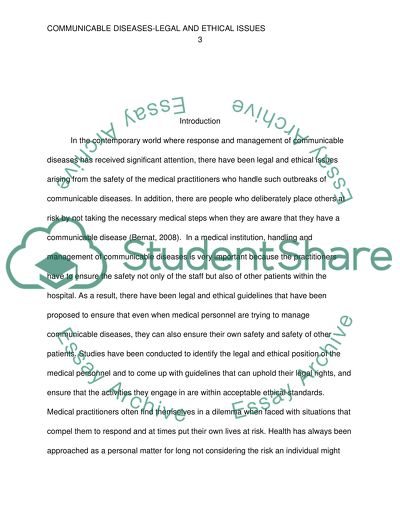Cite this document
(“Communicable Diseases: Legal and Ethical Issues Research Paper”, n.d.)
Communicable Diseases: Legal and Ethical Issues Research Paper. Retrieved from https://studentshare.org/health-sciences-medicine/1447559-communicable-diseases-legal-and-ethical-issues
Communicable Diseases: Legal and Ethical Issues Research Paper. Retrieved from https://studentshare.org/health-sciences-medicine/1447559-communicable-diseases-legal-and-ethical-issues
(Communicable Diseases: Legal and Ethical Issues Research Paper)
Communicable Diseases: Legal and Ethical Issues Research Paper. https://studentshare.org/health-sciences-medicine/1447559-communicable-diseases-legal-and-ethical-issues.
Communicable Diseases: Legal and Ethical Issues Research Paper. https://studentshare.org/health-sciences-medicine/1447559-communicable-diseases-legal-and-ethical-issues.
“Communicable Diseases: Legal and Ethical Issues Research Paper”, n.d. https://studentshare.org/health-sciences-medicine/1447559-communicable-diseases-legal-and-ethical-issues.


